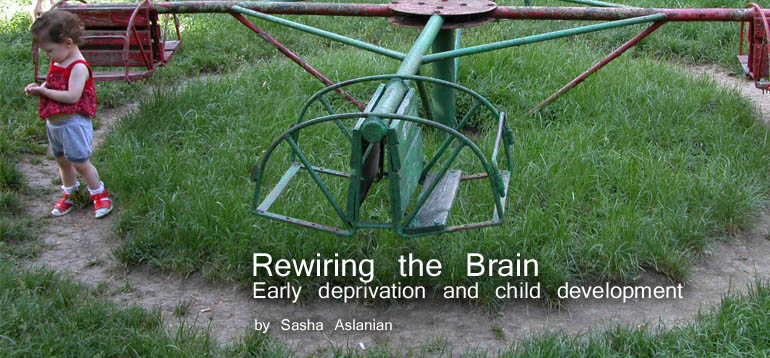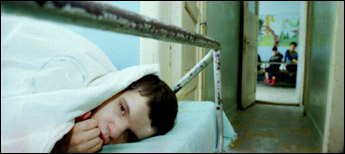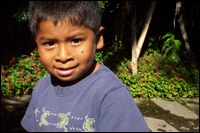 |
 | ||||||||
After the fall of communism in Romania in 1989, the world was shocked to discover a vast system of orphanages. Unwanted children languished in cribs with scant attention from caregivers. The deprivation the children faced provoked international outrage. But it also made possible some unique research. Scientists are measuring how children recover from early neglect and discovering what early damage might be irreversible. |
||||||||
 |
||||||||
|
||||||||
 |
||||||||
|
See other American RadioWorks reporting on adoption including:
|
||||||||
 |
||||||||
|
American RadioWorks' reporting on the brain science of early childhood is funded by the Spencer Foundation, supporting research to improve learning. Major funding for American RadioWorks comes from the Corporation for Public Broadcasting. Credits:
|
||||||||



